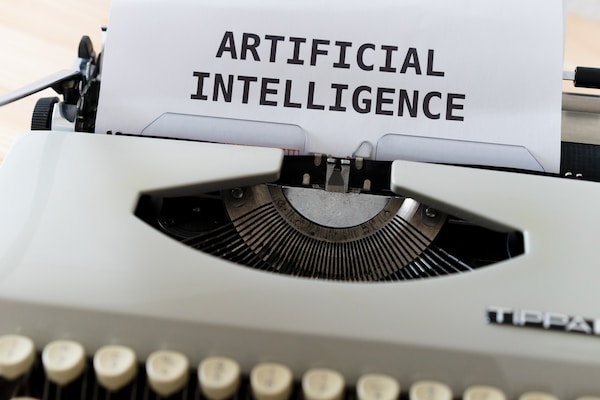The Top 10 AI Tools for Online Content Creation
AI tools have emerged as powerful allies for content creators, offering capabilities that streamline the creative process, enhance productivity, and unlock new possibilities for innovation. From generating written content with astonishing efficiency to designing visually stunning graphics, AI is redefining the landscape of online content creation.
This article delves into the top 10 AI tools that are reshaping how we create, distribute, and consume digital content. Whether you are a seasoned content creator or just starting out, understanding and leveraging these tools can significantly elevate the quality and impact of your work in the online realm.
1. GPT-4 by OpenAI
GPT-4, the latest iteration of the Generative Pre-trained Transformer series by OpenAI, stands out in natural language processing. It can write essays, create conversational bots, and even code in various programming languages. Its ability to understand and generate human-like text makes it an invaluable tool for bloggers, scriptwriters, and digital marketers.
2. DALL-E
Also from OpenAI, DALL-E is a revolutionary AI tool that generates images from textual descriptions. This tool is particularly useful for graphic designers and content creators who need unique visual content. With DALL-E, generating customized images that align with specific content themes is just a few keystrokes away.
3. Jarvis AI
Jarvis AI (formerly known as Conversion.ai) is a copywriting tool that helps content creators produce high-quality written content with minimal effort. It’s excellent for creating SEO-optimized blog posts, social media content, and marketing emails. Jarvis AI’s understanding of tone and context makes it a go-to for persuasive and engaging copy.
4. Grammarly
Grammarly goes beyond a traditional spell checker. It’s an AI-powered writing assistant that helps improve the clarity, engagement, and correctness of your content. For content creators, particularly non-native English speakers, Grammarly is a blessing for ensuring error-free and professional writing.
5. Canva’s Magic Write
Canva, known for its user-friendly design platform, has introduced Magic Write, an AI-powered text generator. It aids in creating compelling copy for social media posts, presentations, and other visual content. Integrating text with graphic design, Magic Write streamlines the process of making visually rich and textually engaging content.
6. Lumen5
Lumen5 leverages AI to transform blog posts and articles into engaging videos. It’s particularly useful for content marketers looking to repurpose written content into video format, a highly engaging and shareable media form. Lumen5’s intuitive interface makes video creation accessible even for those with no prior video editing experience.
7. ChatGPT
Developed by OpenAI, ChatGPT is an AI model fine-tuned for understanding and generating human-like text in a conversational format. It’s an ideal tool for creating chatbot scripts, Q&A style content, and interactive elements for websites and apps.
8. Ahrefs
While primarily an SEO tool, Ahrefs uses AI to provide insights into keyword research, competitor analysis, and content gap analysis. For content creators focused on SEO, Ahrefs is indispensable for strategizing content that ranks well on search engines.
9. Synthesia
Synthesia is an AI video generation platform that creates realistic AI avatars. It’s particularly useful for educational content creators and businesses looking to produce tutorial videos without the need for actual filming. Synthesia can generate videos in multiple languages, making it a powerful tool for global content reach.
10. Descript
Descript is an all-in-one audio and video editing tool powered by AI. It allows content creators to edit media files as easily as editing a text document. Descript is excellent for podcasters and video creators for its ease of use in cutting, editing, and refining media content.
The Impact of AI Tools on Content Creation
The advent of these AI tools has transformed content creation in several significant ways:
- Increased Efficiency: AI tools automate repetitive tasks, allowing creators to focus on more creative aspects of content production.
- Enhanced Creativity: With AI-generated ideas and drafts, creators can explore new angles and perspectives in their content.
- Quality and Accuracy: Tools like Grammarly ensure content is grammatically correct and clear, boosting the professionalism of the output.
- Data-Driven Insights: AI tools like Ahrefs provide creators with data-driven insights, enabling them to produce content that resonates better with their target audience.
- Accessibility and Inclusivity: Tools like Synthesia and Lumen5 make content creation more accessible, allowing creators to produce diverse content formats without specialized skills.
Challenges and Considerations
While AI tools offer numerous advantages, there are challenges and ethical considerations to keep in mind:
- Originality and Authenticity: Relying heavily on AI can sometimes lead to a lack of originality. It’s essential to infuse personal insights and creativity into AI-generated content.
- Ethical Use: The use of AI in content creation should adhere to ethical standards, avoiding misinformation and respecting copyright norms.
- Dependence on Technology: Over-reliance on AI tools may hinder the development of personal skills in writing and design. Balance is key.
The Future of AI in Content Creation
Looking ahead, AI is poised to become even more integral to content creation. As these tools evolve, they will offer more personalized and sophisticated functionalities, further blurring the lines between AI-generated and human-crafted content. Content creators who adeptly integrate AI into their workflows while maintaining their unique voice and creativity will thrive in this new era.
Conclusion
The integration of AI in online content creation heralds a new era of efficiency, creativity, and engagement. The top 10 AI tools mentioned here are just the tip of the iceberg, with many more innovative solutions emerging. As we embrace these technologies, it’s crucial to balance the art of human creativity with the science of AI, ensuring that the content remains engaging, authentic, and impactful.


